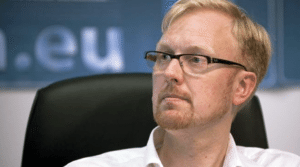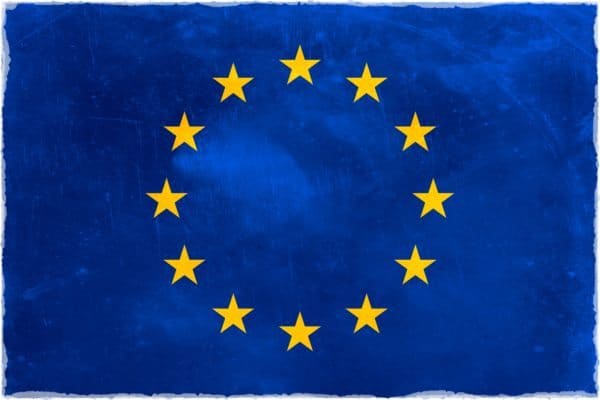For quite some time now, the European Commission has been discussing creating a pan-European approach to investment crowdfunding. This policy move absolutely makes sense and clearly aligns with the Fintech Action Plan and Capital Markets Union.
In many ways, creating a single law for all investment crowdfunding is core to what the European Union is attempting to accomplish. But much positive discussion has come about to very little action in Brussels as the gears of policy move slowly at the Commission.
In the years since the emergence of online capital formation, many EU member states have created bespoke regulation to facilitate crowdfunding within their own borders. As one would expect, some countries have been more effective in creating a robust crowdfunding market than others. Sure. There is the European Passporting option but as far as we can tell, this has fallen well short of its intended goal.
Earlier this month, the European Parliament Innovation group, chaired by MEP Ashley Fox, held a fascinating discussion on crowdfunding in general, and more pointedly initial coin offerings (ICOs) as part of a regulatory proposal. The draft report is available here.
Continental Europe has an opportunity to leapfrog other jurisdictions by providing rules that incorporate all forms of online capital formation including debt, equity, and digital assets. Many observers commented that the proposal was a step in the right direction. It was reported that MEPs had until September 11th to submit any changes to the proposed legislation.
Following the meeting of the Innovation Group, lawyer John Salmon, Hogan Lovells Technology Partner, who helped to craft the proposal, commented on the process of incorporating digital assets:
“Having the certainty, but also having that legitimisation, I very much welcome having a European-wide proposal. I think it would be incredibly helpful to see that: it gives people the certainty to know … but we need to be clear whether this is a utility token or a transferable security, or how the regulatory regime comes within that. But I think it makes perfect sense because an ICO is another form of crowdfunding. It is different, but it is a form of crowdfunding.”
As part of the European Parliament proposal, the European wide crowdfunding cap would be set at €8 million – the current threshold where a prospectus is required. The proposal from the European Commission presently stands at just €1 million – a material difference.
Several individual European countries, such as Germany, have already moved to enable issuers using online investment platforms to raise up to €8 million. Setting this cap for all member states would “make the European platform attractive for cross-border business funding,” according to the Parliament proposal.
 So will this legislation by the MEPs turn into European law? Parliament expects to have their response finalized, and voted on, by early November. CI decided to ask John Salmon for his opinion:
So will this legislation by the MEPs turn into European law? Parliament expects to have their response finalized, and voted on, by early November. CI decided to ask John Salmon for his opinion:
“It is difficult to answer these questions definitively because you never really know what is going to happen in the passage of European legislation between the Parliament and Commission,” stated Salmon. “However, personally I think there is a desire for a pan-European approach and I think the prospects are good. I think there is also a good chance that ICOs will be included within the new framework. I think there are details still to be worked out though.”
CI then contacted Oliver Gajda, the Director of the European Crowdfunding Network (ECN). Gajda has always been at the forefront of advocating on behalf of the young European investment crowdfunding industry. He has worked closely with both platforms and policymakers and knows the policy landscape quite well.
Gajda explained that even though it was an all-party group at the Innovation gathering not all parties were represented.
“Those that were there are aligned and the proposal is, to a degree, a joint effort. However, this is a a small group and I don’t know if all party members are behind this, or just the members of the ECON or the all party innovation group…”
 Gajda said that the document is just a draft opinion by the European Parliament. The key player is the European Council – the representatives of the member states.
Gajda said that the document is just a draft opinion by the European Parliament. The key player is the European Council – the representatives of the member states.
“The European Commission is not too happy about ICO part,” said Gajda. “As the proposal only covers a small amount of the market and leaves that majority out.”
Gajda added that there are questions as to how an ICO platform would be regulated and if an issued token is a security, a currency or perhaps something else.
“You also heard the EBA [European Banking Authority] and ESMA [European Securities and Markets Authority] were very skeptical. Council might be too. Then it would be unlikely to pass. There is so a lot of industry lobbying against this (banks and others). It is meant wll, you heard Ashley Fox, but there is still quite a bit of uncertainty. We are concerned that it could delay the core of ECSP [European Crowdfunding Service Provider] if it drags on in the Council. We may know more after the Council session on the 28th what the chances are.”
[It appears the issue was not addressed in the Council meeting]
Gajda explained that, in all likelihood, any decision will not be finalized until next year. This discussion is far from final.
Insider chatter indicates the EC is willing to move the funding cap higher. Perhaps to €8 million or maybe €5 million (Will an €8 million funding cap – satisfy the ICO crowd?). But expectations are for it to rise significantly.
 The main European stakeholders are the Directorate General for Financial Stability, Financial Services and Capital Markets Union (DG FISMA), the ECON committee in the Parliament, which will prepare the EP proposal to be voted on in the full parliament in November, and the European Council. It is the Council which will defend member states interests and is usually heavily reliant upon national regulators, treasuries, or finance ministries, for qualified input. Of course, there are the industry participants and other stakeholders that might want to influence the law.
The main European stakeholders are the Directorate General for Financial Stability, Financial Services and Capital Markets Union (DG FISMA), the ECON committee in the Parliament, which will prepare the EP proposal to be voted on in the full parliament in November, and the European Council. It is the Council which will defend member states interests and is usually heavily reliant upon national regulators, treasuries, or finance ministries, for qualified input. Of course, there are the industry participants and other stakeholders that might want to influence the law.
- The role of ESMA vs NCAs [National Competition Authorities]: On the issue of supervision and authorisation, some advocate for NCAs to hold primary supervisory responsibility, while others believe the ESMA ought to play an instrumental role in ensuring the harmonised application of the regulation.
- Inclusion of ICOs: Regarded as the single most significant change, stakeholders are divided on this issue. For instance, while one group strongly supports this initiative and wants a more detailed discussion, another segment is much more skeptical and considers this not to be the right time to regulate ICOs.
- Third-country platforms: Most agree in principle with the intention to open the framework to non-EU platforms, though one sector casts doubt upon the need for a third-country provision in the first place and another is asking for details on how the proposal would work in practice.
- Other issues: One proponent believes in the need for greater transparency and investor protection. One party advocates for platforms to be able to financially contribute to their own projects (having skin in the game) as long as interests are aligned.
The consideration of any amendments to the legislation may take place on October 9th with a vote in ECON to follow in November.
There appears to be a sense of determination to improve the pan-European crowdfunding ecosystem with legislation that provides a harmonized approach along with a higher funding cap. The details, including ICOs, are still very much up for debate and discussion.
[Editors Note: The 7th ECN Crowdfunding Convention: Defining the future of European Crowdfunding Service Providers will be held in Brussels on October 18th. The ECN will be discussing the policy debate tackled above.]


